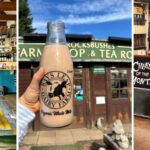- Feel Good
- 30th Oct 2020
- 1.2k Views
- 0
- 1 minutes
“No one chooses to live in hygiene poverty.”

Newcastle Hygiene Bank has seen the demand for its services go through the roof this year. Here, High Life North meets the women working to limit hygiene poverty in our region.










Comments